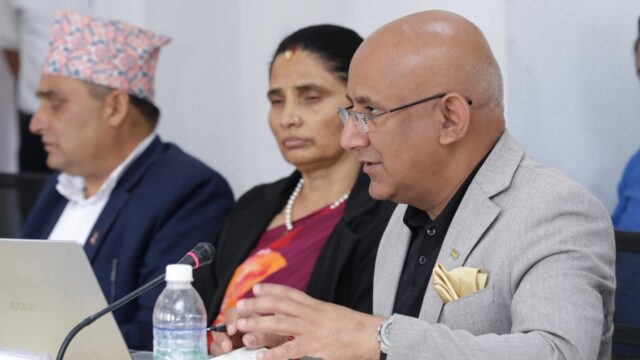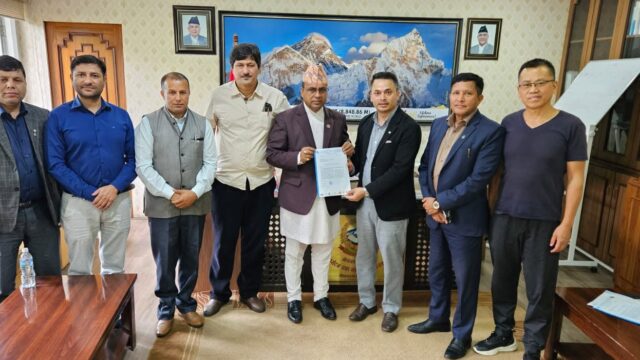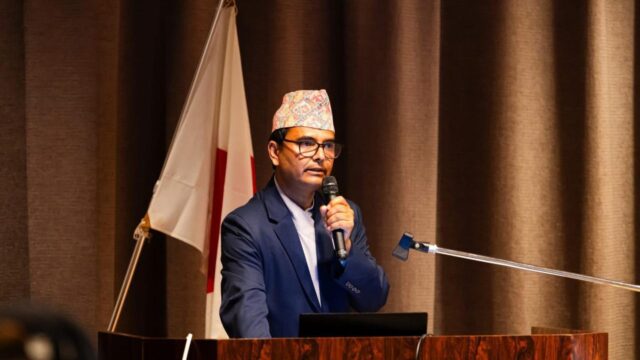Pilgrims of the Mithila Madhyamik 15-day circumambulation (Parikrama) have completed their journey through Mahottari. From the fourth to the eighth day, they stayed overnight in different locations within Mahottari. On the ninth day, they departed from Kanchanban in the morning, heading towards Dhanusha.
With the overnight stay in Kanchanban, the journey through Mahottari has officially concluded as pilgrims entered Dhanusha today. Traditionally, pilgrims stay overnight at Matihani, Jaleshwar, Madai, Dhruvakund, and Kanchanban during this Parikrama.
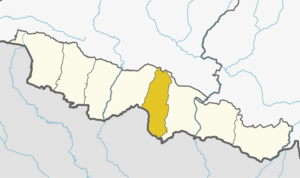
This morning, after bathing in Kanchanban, the pilgrims celebrated with colors, sang devotional songs dedicated to Ram and Sita, and then resumed their journey. Previously, on Thursday, they celebrated the Holi (Fagu) festival in Kanchanban. It is believed that Lord Ram and Goddess Sita played with colors (Abir) here during the Treta Yuga, marking the origin of the Holi festival from this sacred place.
Today, the pilgrims will visit Kshireswarnath Mahadev Temple in Dhanusha and stay overnight at Parbat in Dhanusha. On the tenth day, they will reach Dhanushadham, followed by Satokhar Dham on the eleventh day, and Aurahi on the twelfth day. On the thirteenth day, they will cross into Karuna, Madhubani district, India, for an overnight stay. On the fourteenth day, they will stay in Bisaul, Madhubani, before reaching their final overnight stop at Rangabhoomi Maidan (Barhabigha) in Janakpurdham, Dhanusha.
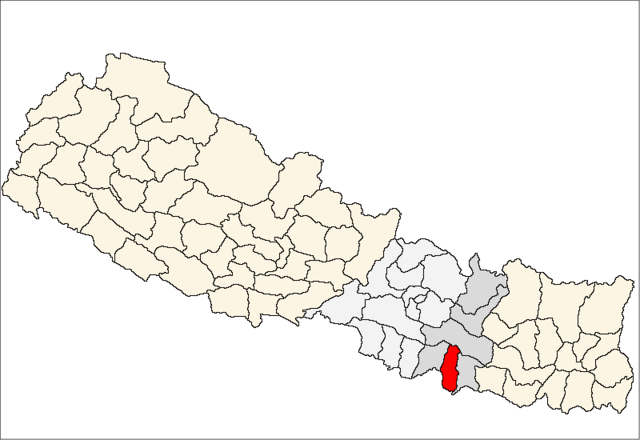
Earlier in the journey, on the first day, pilgrims stayed at Hanumangadhi in Dhanusha. On the second and third days, they stayed at Kalna (Kalyaneshwar) and Phulhar (Girijastan) in Madhubani, India.
On the fifteenth and final day, they will stay overnight at Rangabhoomi and conclude their pilgrimage with an internal circumambulation (Antargriha Parikrama) of Janakpurdham. The Fagu festival is celebrated the day after completing the Parikrama. This 15-day pilgrimage, where the idols of Mithilavihari (Lord Ram) and Kishoriji (Goddess Sita) are carried in a grand procession, is often called the Mahakumbha of Mithila.
According to Maithil’s beliefs, the Madhyamik Parikrama is auspicious and leads to spiritual liberation (moksha). Experts in Maithil culture say this journey inspires purity of mind, positive thoughts, and selfless service.
The total distance of the Madhyamik Parikrama is 133 kilometers, covering 25 kilometers in Mahottari, 80 kilometers in Dhanusha, and 28 kilometers in Madhubani, India.


